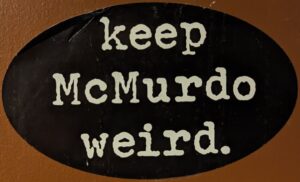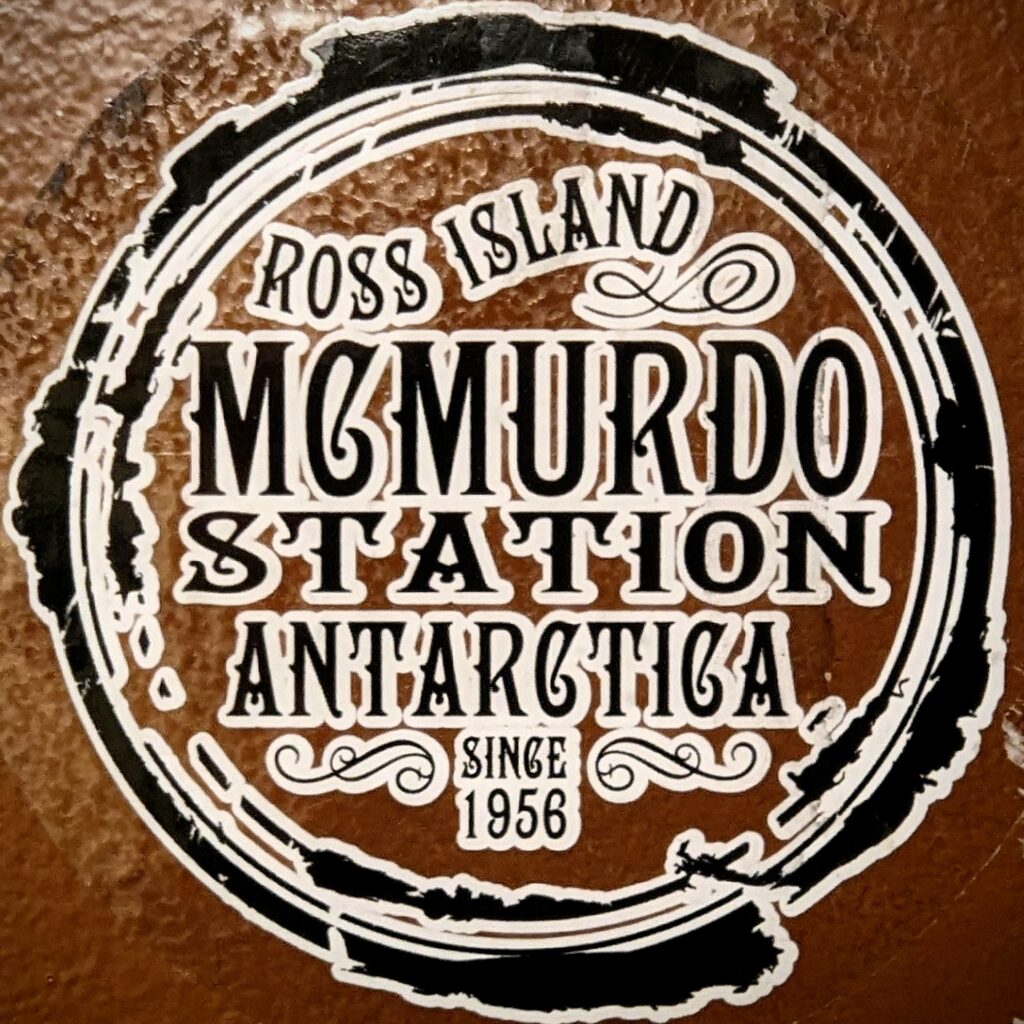In the documentary “Encounters at the End of the World,” filmmaker Werner Herzog highlights a line of thinking that if you shake the earth, all the weird people fall to the bottom. He’s referring to the decidedly offbeat individuals who are drawn to work and live in one of the most extreme environments on the planet – Antarctica. One special little town on this continent, in particular, is McMurdo Station.
McMurdo Station: The Quirky Town of Antarctica
The “Keep [City] Weird” mantra can be found in numerous cities worldwide, but McMurdo Station in Antarctica should be considered among the top contenders for weirdness and quirkiness. For those who call this remote research station home during the harsh Antarctic summer and winter, maintaining an open embrace of McMurdo’s quirky culture is what keeps them returning year after year.
Breaking Conventions on the Ice
From the moment you set foot on the Antarctic ice, it becomes clear this place is different. The rules, norms, and conventions of the “real world” shift. Personal space is virtually non-existent. Grown adults wear onesies to dinner, plan themed parties, and hang out in dormitories. Science researchers can be found cross-dressing for themed costume parties. It’s all part of the allure.
Down in Antarctica, no one bats an eye at the unconventional. In fact, it’s celebrated. This celebration of weirdness helps foster an environment where people feel free to let their freak flags fly without judgment. However, it’s worth mentioning that as technology increasingly permeates the continent, the often isolation-induced weirdness is taming out a bit as the isolation becomes less so. Social media and the ability to call home frequently are resulting in more “real world” integration into the daily lives of the inhabitants.
Necessity Breeds Quirkiness
Many of McMurdo’s offbeat cultural quirks stem from sheer necessity. When you’re living in one of the most isolated places on Earth for months at a time, sanity-preserving measures must be taken. Things like open mic nights, dance parties, and offbeat group activities like duct-taping people to a wall become the norm.
This constant injection of controlled strangeness serves a vital purpose – providing an emotional pressure release valve from the intense, high-stakes work of Antarctic life. Surviving on the harsh continent is serious business, and the human psyche often demands a release from that pressure. The “work hard, play hard” mentality has been in full effect for many decades.
Trauma Bonding in Extreme Conditions
There’s also a powerful psychological component that helps cement McMurdo’s tight-knit community of misfits and oddballs – Trauma Bonding. Finding success in one of the harshest climates in the world together forges an unbreakable camaraderie. Out in Antarctica, someone having your back in a whiteout blizzard can literally be the difference between life and death.
This profound level of shared suffering and interdependence strips away the superficial barriers that often separate people in the “real world.” Race, creed, occupation, political leanings – such constructs fade into irrelevance when a strong blizzard rolls through and causes an emergency.
It’s Just a Way of Life Down Here
So while Herzog’s “strange ones” sentiment may have been intended as an observation about the type of people willing to uproot their lives for Antarctica, it could just as easily describe the surreal, anything-goes atmosphere the continent breeds. When your surroundings are as bizarre and extreme as the vast, icy expanses of Antarctica, embracing a culture of weirdness isn’t just accepted – it’s a way of life.
This is why, for those who have spent time at McMurdo – or anywhere on the Antarctic ice – the “Keep McMurdo Weird” attitude isn’t just a much-used saying applied to another place. It’s a nod to a part of their lives spent letting their freak flags fly in one of the most unique communities on the planet.


